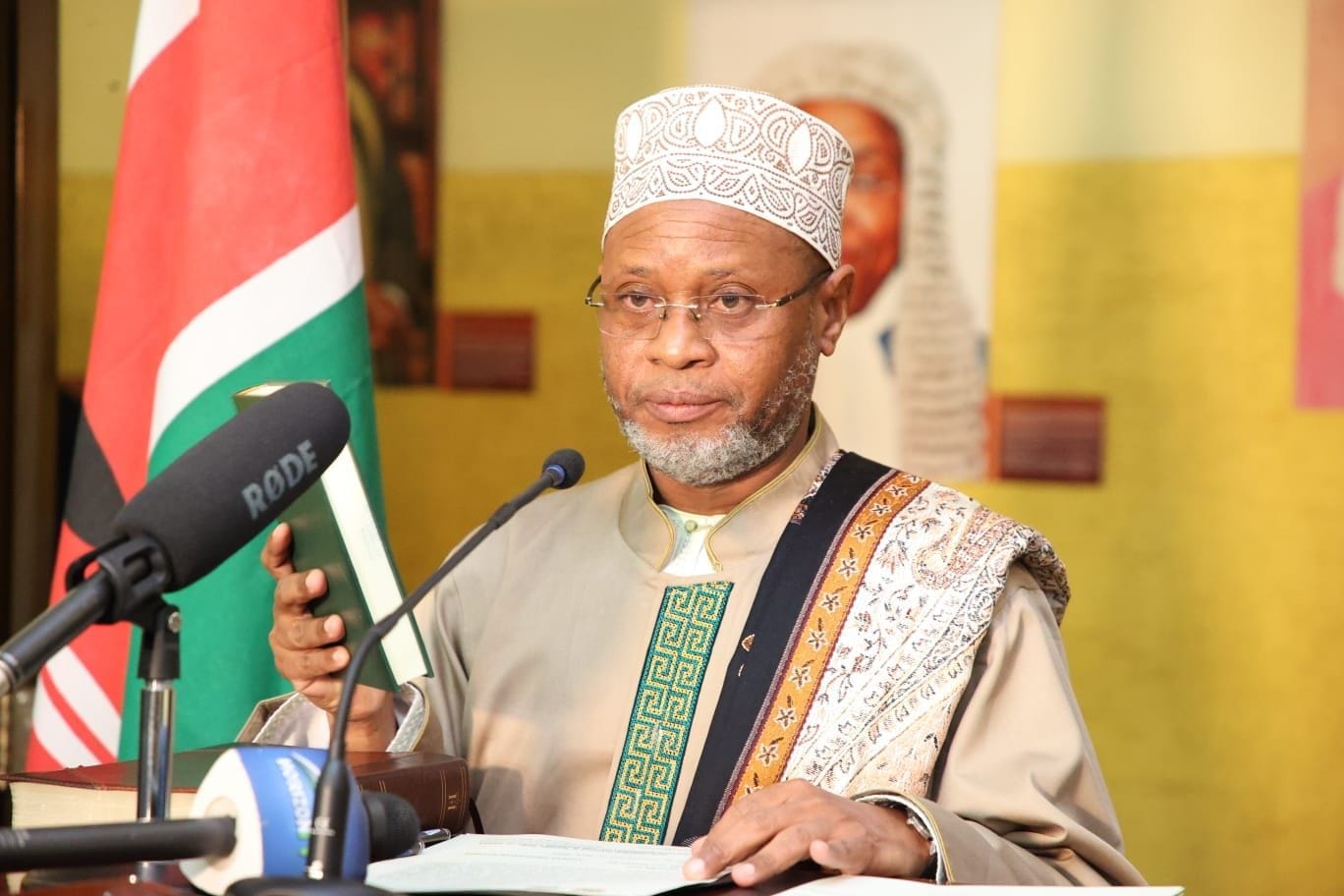Wednesday, July 9, 2025 – Mombasa, Kenya
Kenya is mourning the passing of Chief Kadhi Sheikh Athman Abdulhalim Hussein, a highly respected Islamic scholar and judicial leader who dedicated his life to justice, spiritual guidance, and service to the Muslim community.
Sheikh Abdulhalim passed away in Mombasa on Wednesday. His death was confirmed by Jamia Mosque Imam Sheikh Jamaludin Osman, who stated that funeral prayers (Salat al-Janazah) will be held after Asr prayers.
Born in coastal Kenya, Sheikh Abdulhalim rose from humble beginnings in Malindi and Watamu to become one of the most influential religious and judicial figures in the country. A graduate of the prestigious Al-Azhar University in Egypt, he was known for his deep Islamic scholarship, humility, and unwavering commitment to justice and peaceful coexistence.
He was appointed Chief Kadhi—the highest-ranking judge in Kenya’s Kadhi courts, which handle matters of personal law for Muslims—in 2014. Over the past decade, he played a pivotal role in strengthening the Kadhi court system, promoting legal reforms, and advocating for fairness in matters such as marriage, divorce, inheritance, and family disputes in accordance with Islamic law.
His death has triggered an outpouring of grief and condolences from religious leaders, politicians, and ordinary Kenyans, many of whom credit Sheikh Abdulhalim for fostering unity, tolerance, and dialogue across communities.
Chief Justice Martha Koome, in an official statement, described his passing as a “great loss to the Judiciary and the nation.”
“It is with deep sorrow and sadness that I announce the passing of the Chief Kadhi of Kenya, Sheikh Abdulhalim Hussein,” she said.
“On behalf of the Judiciary of Kenya, the Judicial Service Commission, and on my own behalf, I extend our heartfelt condolences to the family of the late Chief Kadhi, the Muslim community in Kenya, and all those whose lives he touched through his service and leadership.”
She hailed his legacy of fairness, adding:
“As Chief Kadhi, he was a champion of justice, equity, and inclusion. He will be remembered as a deeply spiritual and principled leader who stood for peaceful coexistence, respect for diversity, and integrity. May Almighty Allah grant him the highest place in Jannah and comfort his loved ones in this moment of grief.”
Mombasa Governor Abdulswamad Shariff Nassir shared his sorrow via a statement on X.
“I am extremely saddened by the passing of the Chief Kadhi of Kenya, Sheikh Abdulhalim Hussein. Indeed, we belong to Allah, and to Him we shall return. With the grace of the Almighty, he served the Kenyan Ummah dedicatedly in many ways.”
Wiper Party Leader Kalonzo Musyoka also paid tribute to the scholar, calling him a figure of “honour, wisdom, and commitment to justice.”
“He was more than a religious leader—he was a national figure who brought clarity and compassion to the judicial process. May God Almighty give his family and the nation comfort, patience, and strength during this time.”
Homabay Governor and ODM Chairperson Gladys Wanga praised Sheikh Abdulhalim’s efforts toward social justice:
“He championed unity, judicial reform, and equitable justice, especially for women and children in the Kadhi courts. His leadership was quiet but transformative. May his legacy of service, humility, and bridge-building continue to inspire us all. Inna lillahi wa inna ilayhi raji’un.”
UDA Secretary General Hassan Omar, who also hails from the Coast region, emphasized Sheikh Abdulhalim’s remarkable journey from local mosques to national leadership:
“From humble beginnings in Malindi and Watamu, to graduating from Al-Azhar University, Sheikh Abdulhalim’s life was one of purpose and impact. He served with humility, wisdom, and unwavering commitment to the Muslim Ummah and the Kenyan people.”
Legacy and National Significance
During his tenure, Sheikh Abdulhalim was instrumental in increasing public trust in the Kadhi courts, pushing for legal awareness campaigns, and encouraging peaceful dispute resolution within Islamic legal frameworks. He frequently worked with interfaith groups to promote national cohesion and dialogue, especially during times of political tension.
He also served as a mentor to many young Islamic scholars and judicial officers, leaving behind not just rulings and reforms, but a generation inspired by his leadership and values.
His death comes at a time when Kenya continues to navigate religious and cultural diversity. His presence as a unifying figure will be deeply missed.
As the nation prepares to lay him to rest, tributes continue to pour in, reflecting the wide-reaching impact he had—not only as a religious leader but as a peacemaker, reformer, and symbol of moral integrity.


COMMENTS